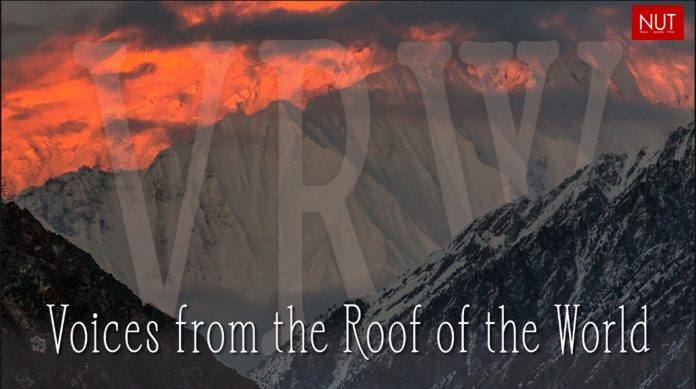Environment & Climate Change Documentary Series “The Voices from the Roof of the World” Season 2 Wins John B. Oakes Award for Distinguished Reporting on the Environment at Columbia Journalism School.
Pakistan (Muhammad Yasir) The second season of the documentary series, The Voices from the Roof of the World (VRW), has won the prestigious John B. Oakes Award for Distinguished Reporting on the Environment at Columbia Journalism School. The series explores the climate crisis in high-mountain Asia and the billions of people that depend on the rivers that flow from these mountains.
This award comes barely a month after the documentary series was selected to participate in the prestigious TV Series Festival Berlin. This month, one of the episodes in the series, ‘The Valleys our Ancestors Chose’ won an award at the South Asian Short Film Festival.
Aga Khan University President Dr Sulaiman Shahabuddin said, “These awards are testament to the need for impactful storytelling around environmental sustainability and climate change. Environmental stewardship is a priority for the AKDN and AKU for which a key part is increasing the understanding of the horrific impact of climate change, especially on vulnerable communities, and the responsibility that all of us have in any way small or large to protect our environment.”
The continuing stream of awards for the Voices from the Roof of the World Series shows is not only testimony to the incredible film making talent in the region but also shows that the appreciation for the importance of climate change is increasing. This is very encouraging, since many people in the mountains see their habitats threatened today, making climate change adaptation an absolute priority.” said Onno Ruhl, General Manager at Aga Khan Agency for Habitat.
The series captures the spirit and resilience of the people who call this region their home, providing an intimate portrayal of their daily lives, traditions, and struggles. The documentary series has garnered widespread acclaim for its captivating storytelling, breathtaking visuals, and its ability to foster cross-cultural understanding.
With over three decades of expertise in creating documentaries and reports and having been honoured with eight Emmys in the news and documentary category, VRW executive producer Andrew Tkach had a different angle for this series. He wanted to immerse the audience into the lives of the mountain people through stunning visuals and heartfelt interviews.
“We wanted to ensure that the voice of the voiceless is heard. The communities living around the Himalayas are resilient, strong and are committed to protect the mountains. Together with the talented filmmakers, we wanted to share their stories with a global audience,” said Tkach.
The 10-part series was produced by filmmakers from Pakistan, Kyrgyzstan, Tajikistan and Nepal: Andrew Tkach, Abdullah Khan, Tolik Godomamadov, Janyl Jusupjan, Asmita Shrish, Shanta Nepali, Aibek Balymbetov, Iskender Aliev, Karim Shallwanee, and Tazeen Bari.
The John B. Oakes Award for Distinguished Reporting on the Environment at Columbia Journalism School is given annually for news reporting that makes an exceptional contribution to the public’s understanding of environmental issues. It recognizes journalists whose work meets the highest standards of journalistic excellence. The selection of The Voices from the Roof of the World reaffirms the series’ continued commitment to delivering compelling narratives and shedding light on overlooked communities.
Voices from the Roof of the World is a joint initiative of the Aga Khan Development Network agencies: Aga Khan University, Aga Khan Agency for Habitat, Aga Khan Foundation, and the University of Central Asia, with the support of Ross Beaty, the Sitka Foundation and the Jenabai Hussainali Shariff Family[TT1] [co2] [MH3] . VRW trains, mentors and supports young Asian filmmakers to produce groundbreaking environmental films about the consequences of climate change for the people and wildlife that are the least responsible for global warming but already shouldering its catastrophic impacts. The films also show how by combining local knowledge and innovation, these communities are finding ways to adapt and fight to save diverse ecosystems and precious water sources.






